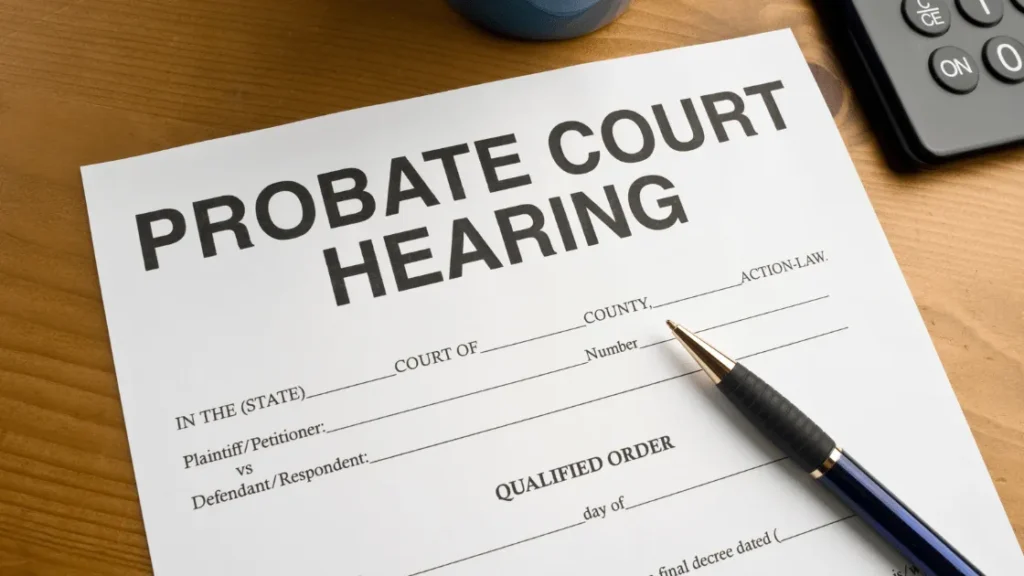If you’re wondering, did you probate a will pro se in Texas?—you’re probably trying to figure out if you did it right. Maybe you skipped the attorney to cut costs. Maybe the case looked simple. But probating a will pro se in Texas involves risks that many people underestimate. You could face legal setbacks if you overlook one critical detail.
In this guide, we’ll break down what it means to probate a will pro se in Texas. We’ll look at the legal boundaries, show you where problems often begin, and walk you through your options if the process didn’t go as planned. Through real-life examples and practical insights, you’ll gain a clearer view of how to protect yourself and the estate.

What Does It Mean to Probate a Will Pro Se in Texas?
When someone says they’ve probated a will pro se in Texas, they mean they represented themselves in court—without hiring a licensed attorney. “Pro se” is Latin for “on one’s own behalf.” While Texas allows pro se representation in civil matters, probate is a different beast.
This distinction often confuses individuals who think probate is simply about filling out a few forms.
Here’s the catch: in probate, you’re not always representing yourself. Often, you act on behalf of the estate. Legally, the estate is a separate entity. That difference matters—a lot. It’s why probate court doesn’t treat self-representation the same way as other civil courts.
Failing to recognize that distinction could lead to serious legal setbacks or delays in estate distribution.
When Pro Se Probate Is Technically Allowed
Texas courts do allow pro se probate in some very narrow scenarios. You might fall into one of these exceptions:
- Filing an Affidavit of Heirship for small estates
- Using a Muniment of Title when the will is valid and debts don’t exist
- Acting on your own rights as a beneficiary or heir, not as executor
If you handled probate this way, and everything aligned with court expectations, great job—you did something many struggle with. But problems arise when someone tries to act as an executor or administrator without legal counsel.
Real-Life Story: When Doing It Yourself Backfired
Let’s look at Dennis. He was a retiree in Montgomery County. When his brother died, Dennis filed the will himself to avoid legal fees. As the named executor, he assumed that self-representation was allowed. The court clerk accepted his paperwork. A hearing date was set.
But when Dennis showed up to court, the judge explained that he couldn’t represent the estate without a law license. The hearing was shut down. His filings were voided. In the end, Dennis had to hire an attorney anyway—but this time, the matter had grown more complex and costly.
Stories like Dennis’s aren’t rare. If you probated a will pro se in Texas, now’s the time to verify if the process was legally valid.
Why You May Not Be Allowed to Represent an Estate Pro Se
Texas courts view self-representation of an estate as unauthorized practice of law. This position exists for a reason: the estate, under law, has its own legal identity. Only attorneys can represent it in court.
The Texas Bar’s View
The State Bar of Texas and several appellate courts have reinforced this rule. Even if you’re the sole beneficiary or named executor, you cannot step into the estate’s shoes in court. Legal representation is required.
Acting on your own behalf is fine—filing paperwork for yourself, responding to notices, or asserting heirship rights. But doing anything on behalf of the estate—submitting documents, appearing at hearings, or handling creditors—crosses into legal territory that only licensed professionals can enter.

Did You Probate a Will Pro Se in Texas as an Executor?
If the answer is yes, and you’ve done everything from filing to attending court, here are the next steps to consider:
1. Review the Court’s Orders
Check if the court officially approved your probate. Did you receive Letters Testamentary? If not, the process likely remains incomplete. You may need an attorney to finish it.
2. Verify What Was Filed
Certain counties accept documents from non-lawyers early in the process. But most require an attorney for court hearings. Make sure to check what the court actually acted upon in your case.
3. Consult a Probate Attorney ASAP
Have you already distributed money or property? Did you pay debts? If the probate wasn’t finalized correctly, you could be liable. A lawyer can review your steps and correct mistakes before they spiral into bigger issues.
4. Prepare for Possible Challenges
Family members or creditors may contest what you did—especially if they think the estate was mishandled. Fixing things before a fight starts is far easier than defending yourself later.
What Happens if You Made a Mistake During Pro Se Probate?
Mistakes during pro se probate aren’t uncommon. Here’s what could happen:
The Court Can Undo Your Work
If the court finds that you acted beyond your rights, it can reverse your actions. You might get removed as executor. The judge may appoint someone else to take over.
You May Be Held Personally Liable
An executor must act in the estate’s best interest. If you paid the wrong people, skipped a step, or distributed assets too early, you could owe money—even if you didn’t mean to cause harm.
You Might Need to Start Over
Sometimes, the best fix is to refile the probate case—this time with a lawyer. Doing it properly ensures the estate is managed by the book and that your own interests are protected.
It’s Not Too Late to Fix It
Don’t panic. Most errors can be corrected, especially if assets remain untouched. But don’t delay—waiting increases the chance that someone else challenges your actions.
When You Might Be Safe: Muniment of Title and Affidavit of Heirship
There are cases where probating a will pro se in Texas is perfectly legal. If you filed a Muniment of Title and all requirements were met—valid will, no debts—then you likely followed proper protocol.
The same goes for Small Estate Affidavits, which apply when the total estate value is under $75,000. These are designed for simplified handling and don’t always require legal help.
Even in these scenarios, checking with a lawyer afterward is wise. One quick meeting could save you from future issues.
What to Expect if You Now Hire a Lawyer
Now that you’re seeking legal support after a pro se filing, the attorney will want to review all previous actions. Gather the following:
- Court filings and approvals
- Notifications sent to heirs and creditors
- Lists of estate assets
- The original will
- Documents showing payments or transfers

The lawyer may suggest amendments, schedule new hearings, or work to formalize your past actions. Their goal is to align your process with state law and minimize your risk.
Real-Life Example: How One Woman Fixed a Pro Se Mistake
Elaine lived in Austin. After her husband passed away, she filed the will herself. The estate was small—just a house and some savings. She didn’t expect issues.
Months later, Elaine tried to sell the house. But the title company halted the deal. She had no Letters Testamentary, and her probate case was never finalized. Elaine hired a probate attorney. He refiled the case under Muniment of Title, which the court approved. The sale then moved forward.
Elaine’s experience proves that even basic estates need proper paperwork. Skipping steps can delay everything.
Should You Go Back and Reopen the Probate Case?
That depends. If you never distributed assets and the court didn’t finalize probate, reopening may be wise. But if everything wrapped up without conflict, and the family remains on the same page, reopening may not be necessary—unless someone challenges it.
Talk to a Lawyer About These Scenarios
Consider legal advice if:
- You failed to notify creditors
- You skipped filing an inventory
- New heirs or wills surfaced
- A dispute is brewing among family members
- A creditor now demands payment

A probate lawyer can evaluate the situation and recommend whether to fix your filings, refile the case, or leave things alone.
Actions After Probating a Will Pro Se in Texas
If you’re asking, did you probate a will pro se in Texas, take time now to review your actions. Texas law allows a narrow path for self-representation. But most probate processes require a licensed attorney—especially when you’re acting on behalf of the estate.
You may have taken the pro se route with the best intentions. You may have tried to save money or keep things simple. But if the probate wasn’t handled properly, you face potential legal consequences. The good news is that most mistakes can be corrected with the help of a probate lawyer.
Whether you’re trying to validate your filings, address pending concerns, or wrap up loose ends, consulting an attorney gives you peace of mind—and protects the estate’s legacy.
Let me know if you’d like to expand this article toward the full 4000-word mark with an FAQ, checklist, or deeper dive into unauthorized practice of law in Texas probate.








